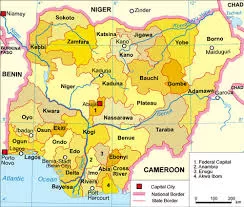
WHO WILL RESCUE NIGERIA FROM TINUBU IN 2027?
During the military regimes of Generals Ibrahim Babangida and Sani Abacha, the struggle to return Nigeria to civilian democratic rule was led largely by political personalities and intelligentsia from the southwestern part of the country.
This became even more strident following the annulment of the June 12, 1993, elections by the Babangida regime. The coming of the Abacha regime with its draconian policies, tipped the scales of the struggle from civil disobedience to a full-scale revolutionary one which drew global attention and support.
Among the prominent personalities of the struggle was current President Bola Ahmed Tinubu. In one of the many images of the era we saw Senator Bola Tinubu as he was then known, walking right behind the presumed winner of the June 12 election, Chief MKO Abiola, as he walked alongside General Sani Abacha when the latter took over as Head of State, following the overthrow of Chief Ernest Shonekan’s Interim National Government. It was then thought by many that General Abacha was to handover to Chief Abiola in a short order. But developments followed thick and fast afterwards. And with Abiola soon clamped in detention, Tinubu along with others fled the country.
Opinions are split on the extent of the role that Tinubu played in the struggle to restore democratic rule in the country. The popular narrative promoted within Tinubu’s circle of admirers was that he (Tinubu) was so piqued by General Abacha’s betrayal that he decided to move abroad to mobilise funds and groups for a revolutionary struggle against the Abacha dictatorship.
The other view, which is not widespread but enjoys some popularity was that following the detention of Chief Abiola, and with some of the ‘June Twelvers’ like Lateef Jakande, Ebenezer Babatope, etc opting to be part of Abacha’s government, not to be left out, Tinubu also sought Abacha for a position. It was after he was denied this request that he left the country in anger to join the struggle.
Today, in a twist of irony, the Tinubu, who fought for the restoration of democratic rights of people in Nigeria, is seen now as president of the country denying the same people their economic and social rights through his policies. His punishing economic policies have taken food from the table of most Nigerians; made it impossible for them to pay children’s school fees; thrown them out of employment; made transportation for purposes of earning a decent living virtually impossible.
Tinubu, the celebrated hero of civil and political rights of people has now become a promoter of economic policies laying Nigerians prostrate. The hurricane of economic hardship Tinubu has introduced spares no one. Former heads of state, statesmen, regional and national leaders, generals, businessmen, students, school children, employers, workers, transporters, indeed the high and low across the six geopolitical zones in the country are groaning loudly and endlessly.
In places of worship, the clergy and clerics, football stadiums and viewing centres, market places, public parks, palaces, inside buses, the main subject of discussion is on Tinubu and the negative impact of his economic policies.
Eight out of 10 Nigerians have lost all confidence in the administration and do not believe that President Tinubu can deliver his much-touted promise of ‘renewed hope’. Without a shadow of doubt, Tinubu’s harsh economic policies and the hardships they have caused have become the most existential issue in Nigeria today.
In addition to the economic hardships, what Nigerians have observed with alarm is the growing tendency by the Tinubu government to constrict the democratic space. Many Nigerians see this as a move intended to prevent the emergence of potentially formidable opponents in the next round of elections.
Against this background, the growing feeling among Nigerians today is that President Tinubu should not be re-elected in the next round of elections in 2027, if he continues on his present trajectory of governance. Nigerians believe that it is bad enough as it is presently, and will certainly be worse once he gets re-elected in 2027. They believe that once re-elected, he will feel safe and free to continue the punishing economic policies.
So,, we are back to the trenches. Democracy is not just about political and civil rights; it is also about inalienable social and economic rights and the pursuit of happiness. Any administration that sets out to give Nigerians hardship without remit as Tinubu
Against these unsavoury developments, Nigerians are wondering if this is not similar to the Abacha era?
We remember that Abacha denied us our political and democratic rights. But we also recall that the economic policies he implemented were benevolent; he kept the naira exchange rate steady throughout his rule and he made effective use of the proceeds from the marginal increase in the prices of petroleum products by instituting far-reaching social reform
 Premium News
Premium News